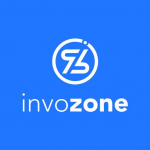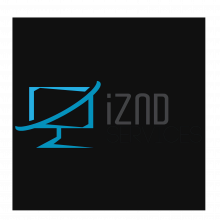
There are 25 Companies in Malaysia
that provide Google Cloud Platform (GCP) Services!
Malaysia is strategically situated with easy accessibility to other countries and has a robust infrastructure, economic stability. ICT has been identified as the key growth sector in the country that grows at an Annual Average Growth Rate (AAGR) 9.0 percent over a period of 7 years. The ICT sector is one of the most productive in Malaysia, and besides boosting digital transformation, it is contributing about 13.8% to the total GDP.
Discover Top IT Companies in Malaysia specialized in Google Cloud Platform (GCP) and other related services. Find the best IT service providers for your projects.
Google Cloud Services represents a comprehensive suite of cloud computing solutions offered by Google. These services encompass cloud infrastructure, data storage, machine learning, analytics, and more. As businesses increasingly shift to the cloud, Google Cloud has become a vital platform for innovation, agility, and scalability.
There are many IT companies that specialize in providing Google Cloud services, offering a wide range of expertise in cloud computing, infrastructure, and data management. These companies collaborate closely with Google to deliver services tailored to businesses of all sizes and industries.
Handpicked companies • No obligation to hire • 100% risk-free
Featured Companies in Malaysia
This month, the following Google Cloud Platform (GCP) companies managed to provide an outstanding service and support. It's worth taking a look.

Kuala Lumpur, Malaysia Head office in: United States
SDLC Corp is a global IT solutions provider offering custom software, apps, blockchain, AI, Odoo, Salesforce, and game development services.

Fire Bee Techno Services Verified Company
Kuala Lumpur, Malaysia Head office in: India
Fire Bee Techno Services is an ISO-Certified Blockchain and AI Development Company In india and across the world with 13+ years of experience.
Your no. 1 Full Stack Digital Partner in Mobile App and Web App development; Imagine | Design | Create | Grow. New website at www.lizard.global
Explore Top Google Cloud Platform (GCP) Companies in Malaysia

TechGropse Pvt. Ltd. Verified Company
Kuala Lumpur, Malaysia Head office in: United Arab Emirates
Techgropse is a leading Mobile App and Web Development Company, dedicated to turning innovative ideas into remarkable digital solutions. 500+ Clients
We are Shortcut Asia, a leading software development agency in Southeast Asia. We turn your ideas into reality.
GREEN-i blends strategy, creativity and technology to build impactful web, app, marketing and data experiences.
UI/UX-led digital experience agency crafting soulful, strategic brands that command trust and feel premium online.

Dirayaah Smart Technologies Verified Company
Petaling Jaya, Malaysia Head office in: Saudi Arabia
Dirayaah Smart Technologies™ Paves The Way For Organizations To Expand Their Abilities To Stand Out Through Developing Advanced Software Solutions.
A global software company driving digital transformation worldwide, with expertise in design, mobile, web development and more.
Rewire your organization using AI and automation.
Evolve with Innovation.
Innovative IT solutions provider specializing in SaaS, IoT, and cloud infrastructure for businesses worldwide.

Persistent Systems Verified Company
Selangor Darul Ehsan, Malaysia Head office in: India
See Beyond, Rise Above

Kuala Lumpur, Malaysia Head office in: United States
Software Outsourcing Partners For Innovators!
We Make Brands Clickable, Credible, Memorable
Based in Cyberjaya, Malaysia specialize in delivering potent creative design, video production, and digital marketing services that elevate brands
ThunderQuote is a digital solutions and capability building specialist for the social, nonprofit, and public sectors in Singapore and the region.
Partner with PowTech for staff augmentation, managed services, and development expertise to drive your business forward efficiently and effectively.
Phi Software Sdn Bhd — your Partner Hub for Innovation, delivering tailored software solutions that drive growth and digital transformation.
We place you at the center of international networks to advance your strategic interests.
We are the largest local software team With more than 200 members, operating for over 12 years since 2012
Webby is a fast-growing IT company based in Kuala Lumpur that provides custom web applications and mobile apps development services for our clients.
We Accelerate Your Business To Achieve Transformational Growth.
- 1
- 2
Filter Google Cloud Platform (GCP) Companies in Malaysia by Cities
Find the right tech company near you or from a specific city. Some of the best companies might be located in smaller cities.
Find more Google Cloud Platform (GCP) companies around the world
TechBehemoths is the world's most advanced and user-friendly platform to match IT Companies with real clients without hustle.
The IT Industry in Malaysia: General Portrait
Malaysia is strategically situated with easy accessibility to other countries and has a robust infrastructure and economic stability. ICT has been identified as the key growth sector in the country that grows at an Annual Average Growth Rate (AAGR) of 9.0% over a period of 7 years. The ICT sector is one of the most productive in Malaysia, and besides boosting digital transformation, it is contributing about 13.8% to the total GDP.
Malaysia has always been a popular destination for U.S. ICT companies for their global market expansion. Some of the significant U.S. companies that are well-established in Malaysia are IBM, HP, Intel, Google, Amazon, and many others. Malaysia has a holistic digital ecosystem and a complete ICT support system for U.S. businesses.
At the same time, according to Markus Monnikendam from Lizard Global, a leading IT company from Malaysia, we can say that following a stronger-than-expected rebound of 7.8 percent last year, the Central Bank of Malaysia projects economic growth of between 4% and 5% in 2023, which will help Malaysia avoid a recession. The recovery is widespread across industries and businesses. Since the reopening of international borders, recovery has become more established. Businesses of all sizes and in all industries saw an increase in sales as compared to the same period before the pandemic. But when it comes to sales growth, big businesses continue to dominate.
Why You Should Work With Malaysian IT Companies
Malaysia is a great outsourcing opportunity for foreign companies, but it hosts numerous tech giants, which have educated the local digital community to implement those needed changes in business culture, project management, and prepared the skilled workforce in the IT industry.
For this reason, companies from Malaysia are more visible and considered a regional force in the IT industry, making good competition for Indonesia, the Philippines, and even India.
In addition to this, Markus Monnikendam, the Commercial Director Global of Lizard Global, mentions that in the upcoming years, Malaysia's growth will be centered on technology. Malaysia's much-awaited adoption of 5G technology is anticipated to have a substantial positive impact on the labor market because it will enhance the development of the web and generate an estimated 39,000 value-added jobs.
Why Outsource Software Development to Malaysia?
Malaysia is an attractive outsourcing destination known for offshoring services in software development and BPO. It has a rapidly growing tech industry with thriving tech hubs, boasting a vibrant startup ecosystem, innovation centers, and accelerators. Various factors make Malaysia more appealing as an outsourcing location, including supportive government policies, the presence of tech cities, and high-quality education. Additionally, talented tech experts, high English proficiency, cost-effectiveness, and ease of doing business in Malaysia raise Malaysia’s position as a perfect destination for software development outsourcing.
What to Pay Attention to When Working With Malaysian IT Companies
Since it is expected that Malaysia will reach a digitalization level of 21% by 2025, local IT companies are struggling to invest in the training and education of young developers and designers that would bring potential growth to the Malaysian IT sector. However, following the current trends, Malaysian IT companies have a high chance of growing and providing higher-quality digital services.
Also, the layoffs in the IT industry. Markus Monnikendam from Lizard Global states that recent layoffs at IT firms show that even the biggest businesses can make misjudgments when attempting to strike a balance between staff planning and profitability.
How Reliable Are Malaysian IT Companies
On a regional background known for outsourcing destinations for international IT companies, Malaysian web and software agencies have a continuously improving position in terms of reliability. Both local demands for digital products and international opportunities gave Malaysian IT companies enough chances to reveal their potential and increase the trust level of clients.
How Does the Malaysian IT Industry Relate to the Neighboring Countries?
The tech evolution in the past 5 years has managed to create a competitive environment in the region, where each step towards evolution is considered an advantage. The Malaysian IT industry relies heavily on tech giants' investments that would to manage, keep, and educate young professionals. Nonetheless, the recent tax-friendly policies implemented by the Malaysian government managed to develop the IT industry and infrastructure, but it is still behind Indonesia and India.
How is the Business Climate for Opening a New IT Company as a Local Entrepreneur in Malaysia?
According to Ezra Tan from VeecoTech Web & Ecommerce Sdn Bhd, a local IT company from Malaysia, the demand is higher than the supply. However, IT talent is minimal, and companies are competing aggressively to recruit talent, which is one of the main struggles for new IT companies that have to compete with bigger market players. This means that when opening an IT company in Malaysia, the entrepreneur should first look for skilled professionals due to high competitiveness, and only later be concerned about incoming projects.
Moreover, Markus Monnikendam states that Malaysia, a developing nation, has been attempting to diversify its economy to reduce its reliance on natural resources and move towards a more knowledge-based economy. Kuala Lumpur (KL) is ranked as the third best startup ecosystem in Southeast Asia, behind Singapore and Jakarta, in Startup Genome's 2020 Global Startup Ecosystem Report. With startups in numerous industries, Malaysia has a broad startup environment. However, e-commerce, fintech, and healthcare are the most promising industries.
How do Governmental Institutions Encourage the Development of the IT Sector?
Erza Tan also states that there are multiple grants that are being rolled out to encourage businesses to be more innovative and to assist small businesses to digitalize their businesses with special tax rebates as well. Some of these grants can be found at MDEC, or get more information about them on HSBC.
Also, according to the Commercial Director Global of Lizard Global, Markus Monnikendam, the Malaysian government created the MyDIGITAL program as part of the Malaysia Economy Digital Economy Blueprint to promote this broad-based ambition, embracing a national digital transformation. The government has goals to make Malaysia a high-income, digitally-driven nation and a regional leader in the digital economy by 2030, and this program is a part of those plans. Malaysia aims to strengthen its position as a regional data hub through the government's Cloud First plan under the MyDIGITAL framework, embracing investment in data centers.
Industry 4.0 represents a shift in the global economy of Malaysia, driven by technologies like AI, IoT, robotics, and big data analytics. It helps improve efficiency and competitiveness and is adopted by different countries, including Germany, the US, and China. Malaysia is leveraging Industry 4.0 to optimize its manufacturing industry, attract foreign investments, and foster tech innovations.
Kuala Lumpur & Penang - the Best Cities for IT Businesses, Locals Say
When asked about the best two places for IT businesses in Malaysia, Erza mentioned that Kuala Lumpur would be the best city for IT companies, as it has the best balance of having a bigger pool of talent and a bigger opportunity to do business with a wide range of local and MNC companies there. The next location would be Penang. A growing hub and one of the biggest contributors to the country's revenue.
But the list goes on, as Markus Monnikendam from Lizard Global places in the lists two other locations at the top of doing IT business in Malaysia: Cyberjaya and Iskandar Puteri.
- Cyberjaya - With 144,000 innovators and creators, 400 MSC-status organizations, including multinational corporations (MNCs), and more than 40 government offices and centers, the city is currently regarded as Malaysia's technological hub. It essentially acts as the foundation for successful technology companies and businesses.
- Iskandar Puteri - It is now a center for cutting-edge digital innovations. Iskandar NEXT, one of its initiatives, aims to create and deploy Fourth Industrial Revolution (4IR) technological ecosystems. The Blockchain Village at Medini (BVAM) and the Drone and Robotics Zone (DRZ) Iskandar, Malaysia's first drone and robotics hub, were both made possible as a result.
Is the Malaysian Talent Poll IT-driven?
The short answer - yes. The long answer, however, has a more detailed explanation. According to Lizard Global, when local talents move employers in 2023, local talent anticipates earning an increase of 20% to 30% in pay. Less than 20% salary increases will probably make it difficult for businesses to recruit top employees. Other financial perks, such as fuel or transportation allowances, food subsidies, and flexible yearly leave, are particularly effective for attracting talent while improving the entire employee experience. However, if there is one perk that we are aware of that employees value most, it is flexible scheduling.
This article was created together with prominent figures and professionals coming from reputable Malaysian IT Companies. Special credits: Erza Tan and Markus Monnikendam.
What is Google Cloud Platform (GCP) and what are its benefits for your projects?
Google Cloud Services represents a comprehensive suite of cloud computing solutions offered by Google. These services encompass cloud infrastructure, data storage, machine learning, analytics, and more. As businesses increasingly shift to the cloud, Google Cloud has become a vital platform for innovation, agility, and scalability.
There are many IT companies that specialize in providing Google Cloud services, offering a wide range of expertise in cloud computing, infrastructure, and data management. These companies collaborate closely with Google to deliver services tailored to businesses of all sizes and industries.
Reliability is a hallmark of IT companies providing Google Cloud services. They are often Google Cloud Partners or Google Cloud Certified, indicating a high level of expertise and a commitment to delivering top-notch solutions. These companies offer support throughout the cloud adoption journey, from initial planning and migration to ongoing management and optimization.
Google Cloud service providers leverage a variety of tools and technologies to deliver robust cloud solutions. They utilize Google Cloud Platform (GCP) services like Compute Engine, BigQuery, Kubernetes Engine, and TensorFlow for machine learning. Additionally, they often incorporate DevOps practices and tools for automation, monitoring, and continuous deployment.
Related services to Google Cloud encompass a broad spectrum of cloud computing and technology solutions. These include cloud consulting and strategy, cloud security services, cloud application development, cloud migration services, and managed cloud services. Organizations often seek these complementary services to enhance their cloud initiatives.
Choosing the best IT company for Google Cloud services involves careful evaluation. Look for companies with Google Cloud Partner status, industry-specific expertise, and a track record of successful cloud projects. It's essential to align your choice with your project's complexity, budget, and specific business needs.
Google Cloud providers are needed for various project types, including:
-
Cloud Migration: Moving on-premises infrastructure and applications to the cloud.
-
Big Data Analytics: Leveraging Google Cloud's data analytics and machine learning capabilities.
-
Application Modernization: Updating and optimizing legacy applications for the cloud.
-
Multi-Cloud Strategies: Managing hybrid and multi-cloud environments.
-
DevOps Implementation: Integrating DevOps practices for agile development and deployment.
Companies across various sectors can benefit from Google Cloud services. This includes startups seeking scalable cloud resources, enterprises looking to modernize IT infrastructure, e-commerce businesses requiring robust and reliable hosting, healthcare providers managing sensitive patient data, and financial institutions seeking secure and compliant cloud solutions.
When considering the cost of Google Cloud services, it's essential to understand that pricing can vary widely based on usage, services deployed, and location. Google Cloud offers flexible billing options, including pay-as-you-go and custom pricing for enterprises.
While small businesses may spend hundreds of dollars per month, large enterprises can invest significantly more in their cloud infrastructure. Costs in the US, UK, and Australia may differ due to regional factors and currency exchange rates. It's advisable to work closely with Google Cloud service providers to estimate and optimize costs based on your specific cloud requirements and budget constraints.

















